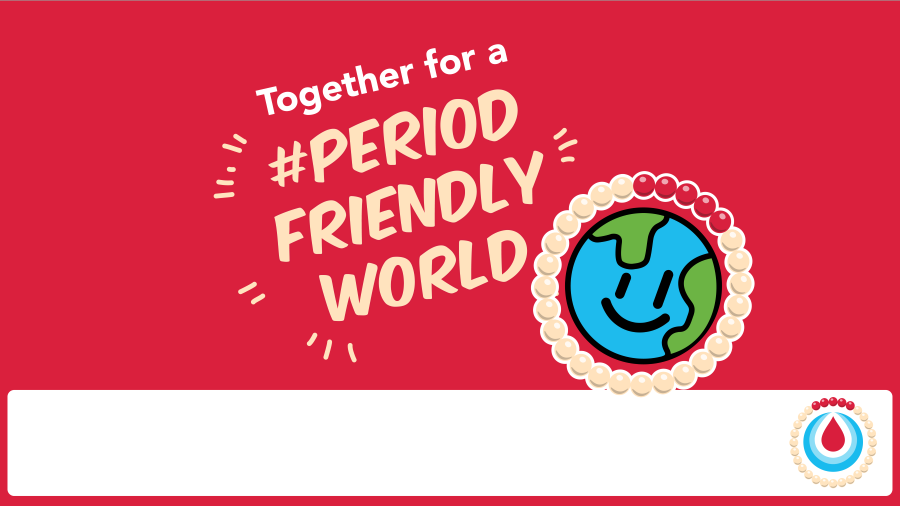
This year marks the 10th annual celebration of Menstrual Hygiene Day, on 28 May. Menstrual Hygiene Day is a global movement to promote good menstrual health, which encompasses a total physical, mental, and social well-being related to the menstrual cycle. Whilst the movement originally started as a campaign to raise awareness of the lack of access to safe and hygienic menstrual products and facilities, it has grown beyond the hygiene horizon to now also focus on wider issues related to stigma, social context and education. Promoting menstrual health calls for numerous forms of actions, from providing access to sanitation facilities and clean menstrual items to breaking stigma and discrimination around the cycle. These varieties of actions convey objectives beyond clean and hygienic menstrual practices and preventing menstrual-related physical diseases to assisting millions of women and girls worldwide in realising their full potential with their body and social status. Promoting menstrual health is fundamental for promoting empowerment and gender equality, and also a vital component in preventing gender-based violence.
Menstruating individuals have long experienced challenges. Approximately five hundred million people worldwide lack access to sufficient menstruation products or facilities for managing their menstrual hygiene. The high cost of period products and the lack of education surrounding menstruation, often referred to as ‘period poverty’ disproportionately affects people in low- and middle- income countries (LMICs) or in countries affected by conflict. Access to menstrual hygiene facilities and sanitary pads was consistently linked to income disparities in a number of LMICs, including Democratic Republic of the Congo, Ethiopia, Ghana, Kenya, India, Indonesia, Nigeria and Uganda, thus, promoting menstrual health also requires addressing broader determinants such as socio-economic status, education and infrastructure constraints. Urgent policy attention in these areas is needed to ensure that people from lower-income households will be capable in managing their menstrual health as those from higher-income ones.
Menstrual-cycle related inequities also exacerbate inequities in other areas of life for people who menstruate. For example, the MENISCUS trial, led by researchers at the London School of Hygiene & Tropical Medicine, analysed the associations with menstrual anxiety and school attendance in Uganda and found an association between menstrual pain and reduced school-attendance. More than half of the participants also felt anxious of their upcoming period. As challenges and impacts around menstrual health are multifaceted, especially in young girls, promoting menstrual health calls for comprehensive programmes addressing both girls and their surrounding environment. Increasing knowledge and practical methods on managing menstruation needs to be supported by sufficient facilities in home, school and social settings with less stigma. This project suggests taking a multi-programmes approach to address menstrual health may enhance educational and mental health outcomes. A youth-friendly environment and including other parties, such as boys, with access to menstrual education are vital to reach our objectives in menstrual health.
In relation to menstrual health, we also need to consider the health of our planet. Disposable and plastic-made menstruation products contribute to air pollution and global warming, with the incorrect disposal of them potentially polluting our landfills and oceans, further risking the health of humans, wildlife and our habitats. Raising awareness of how disposable menstrual products affect the environment globally and finding sustainable solutions must be included in promoting equitable menstrual health and hygiene. The making, delivery and use of reusable pads will not only benefit our earth, but potentially increase the cohesion in our community in supporting people who menstruate, especially in resources-limited settings.
Despite the gaps and struggles, many and more amazing projects are happening across the world currently to promote menstrual hygiene and health, a recent review of practices in East Asia and the Pacific area highlighted such progresses. Positive movements and greater supports around menstrual health have been seen by integrating it across sectors such as Water, Sanitation and Hygiene (WASH), health, gender and education. Beyond the hygiene horizon, let us increase our good work and efforts to close gaps in menstrual health and hygiene around our communities. Let us improve our collaboration to find and apply solutions in a sustainable manner. Nobody should feel less or inferior just because they are menstruating.
End the Stigma. Period. – UN Women
LSHTM's short courses provide opportunities to study specialised topics across a broad range of public and global health fields. From AMR to vaccines, travel medicine to clinical trials, and modelling to malaria, refresh your skills and join one of our short courses today.
